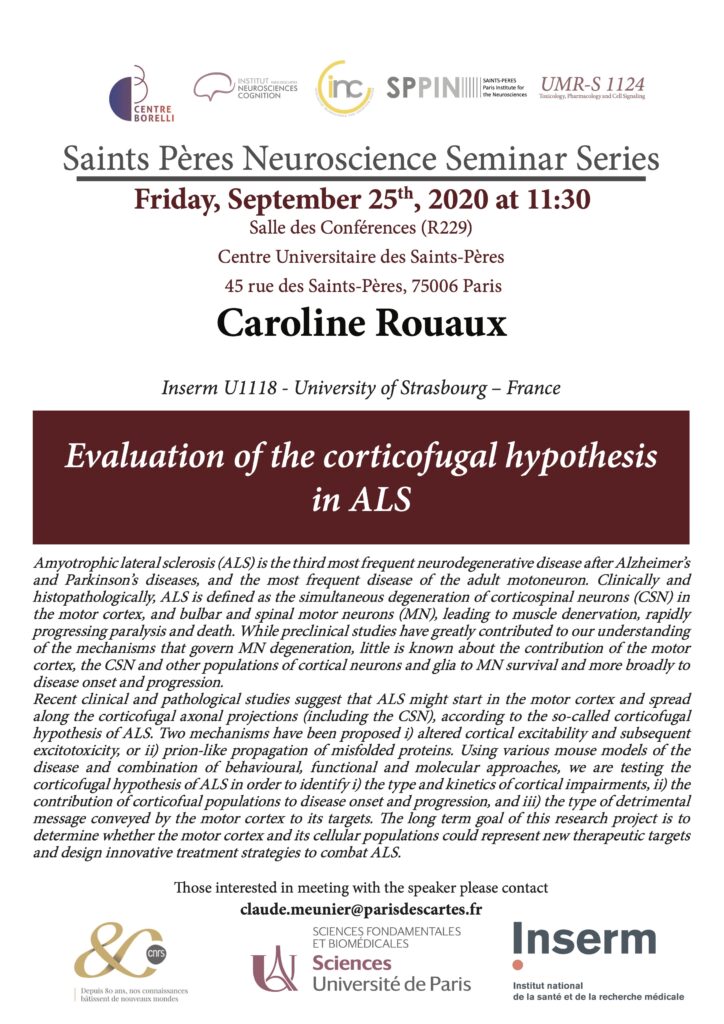événements, séminaires, vidéos
25 Septembre 2020 – Caroline Rouaux (Inserm U1118, Université de Strasbourg, France) – Evaluation of the corticofugal hypothesis in ALS
Amyotrophic lateral sclerosis (ALS) is the third most frequent neurodegenerative disease after Alzheimer’s and Parkinson’s diseases, and the most frequent disease of the adult motoneuron. Clinically and histopathologically, ALS is defined as the simultaneous degeneration of corticospinal neurons (CSN) in the motor cortex, and bulbar and spinal motor neurons (MN), leading to muscle denervation, rapidly progressing paralysis and death. While preclinical studies have greatly contributed to our understanding of the mechanisms that govern MN degeneration, little is known about the contribution of the motor cortex, the CSN and other populations of cortical neurons and glia to MN survival and more broadly to disease onset and progression.
Recent clinical and pathological studies suggest that ALS might start in the motor cortex and spread along the corticofugal axonal projections (including the CSN), according to the so-called corticofugal hypothesis of ALS. Two mechanisms have been proposed i) altered cortical excitability and subsequent excitotoxicity, or ii) prion-like propagation of misfolded proteins. Using various mouse models of the disease and combination of behavioural, functional and molecular approaches, we are testing the corticofugal hypothesis of ALS in order to identify i) the type and kinetics of cortical impairments, ii) the contribution of corticofual populations to disease onset and progression, and iii) the type of detrimental message conveyed by the motor cortex to its targets. The long term goal of this research project is to determine whether the motor cortex and its cellular populations could represent new therapeutic targets and design innovative treatment strategies to combat ALS.

